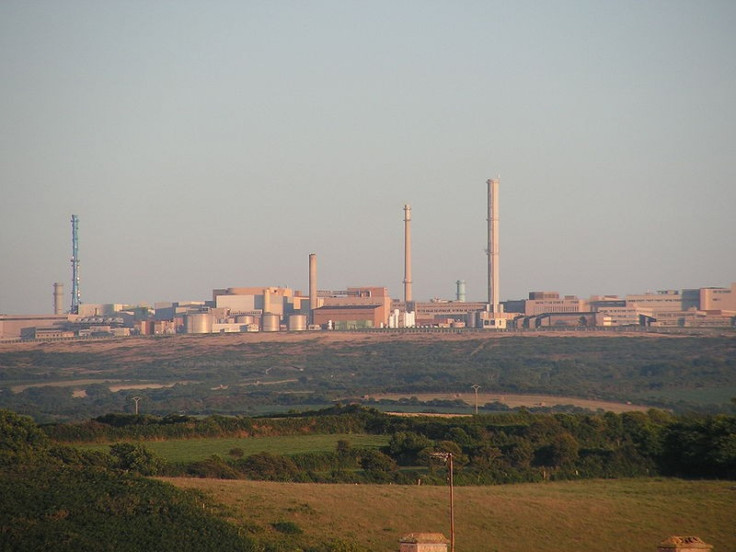U.S. Must Mirror France - Liberty, Equality, Fraternity, Fission
Column

Readers of this space know that it's frequently addressed the United States' multi-faceted energy problem -- multi-faceted in that it involves both supply and demand issues.
The U.S.'s two biggest energy form problems? We use: 1) too much oil and 2) too much coal.
Each has triggered a host of environmental, health, economic and related problems. In the weeks ahead, the oil conundrum will be discussed; today the subject is coal.
Coal Use Must End, And Soon
Simply, coal use has to be phased-out. Coal, which is used in 45 percent of the U.S. power plants to generate electricity, accounts for 20 percent of global greenhouse gases. Coal is an inherently higher-polluting and more carbon-intensive energy form, and it's the largest contributor to the increase in human-made carbon dioxide in the air -- a greenhouse gas that causes climate change and global warming.
In other words, it's highly unlikely that climate change will be reduced, then eliminated, if coal use is not phased out.
The solution? Natural gas, particularly if hydro-fracking techniques can be conducted safely (inconclusive, as of December 2011), has the potential to displace a considerable amount of coal-fired plants. Meanwhile, wind, solar and other renewables hold long-term promise and their percentage of electric power generation fuel will increase in the decades ahead, but the two are not advanced enough at the dawn of 2012 to take over as primary energy sources.
Also, given that natural gas conversion will not take place on a scale large enough to eliminate all coal-fired plants, an energy gap exists and it can be filled by nuclear power.
It makes a great deal of the sense for the United States to mirror France's model and build nuclear power plants - - 100% public funded if necessary - - on a grand scale.
And the reasons are tri-fold: 1) energy independence, 2) a reduction in the nation's carbon footprint, pollution and climate change affect that comes from coal-fired electric plants, and 3) job creation.
The U.S. should embark on a plan to build at least 100 nuclear plants -- perhaps as many as 200 plants -- above the 34 reactor applications on file at the nation's Nuclear Regulatory Commission, and seek private investors, if they're game. If not, then the nation should try a private-public partnership, but the U.S. government should be prepared to fund a plant at 100% should the private sector not be willing to invest in a venture.
France: Liberty, Equality, Fraternity, Fission
Concerned about nuclear waste? The United States has always cited nuclear waste processing as a barrier to nuclear power but France has had in place an active nuclear reprocessing program at COGEMA La Hague and Tricastin for decades.
Nuclear power never went out of style in France, and for this reason France is decades ahead of the United States -- and much of the world, for that matter -- regarding energy self-sufficiency, The New York Times reported. An astounding 78.8 percent of France's electricity comes from its 58 nuclear power plants, and it is a net-exporter of electricity to Europe. The United States has 104 nuclear power plants, which account for only 19.4% of its generated electricity, according to U.S. Department of Energy data, The Times reported. (France launched an ambitious nuclear power program decades ago because France does not have any oil nor abundant coal.)
Further if the U.S. chooses to not reprocess nuclear waste it can always store in Yucca Mountain, or at new storage facility, perhaps in the far reaches Alaska.
Also, in addition to helping achieve energy independence, increasing the U.S.'s barely-adequate generating capacity, and decreasing coal emissions, nuclear plant construction and operation will create hundreds of thousands of new jobs - - a new, mini-industry for the U.S. Further, there's much to be learned from France about nuclear power plant construction, but any U.S. improvements could serve as the basis for yet another export technology for the U.S.
In sum, a vast expansion of nuclear generating capacity is compelling on energy independence, climate change, and job creation grounds. The view from here argues that the U.S. must build as many nuclear power plants as possible to ensure an adequate electric power supply well into the mid-21st century, to send a message to all nations -- particularly to China - that coal use must end -- and to serve as another job source for an economy that needs all the jobs it can get.
--
© Copyright IBTimes 2025. All rights reserved.





















